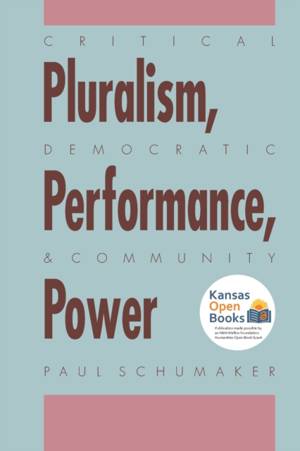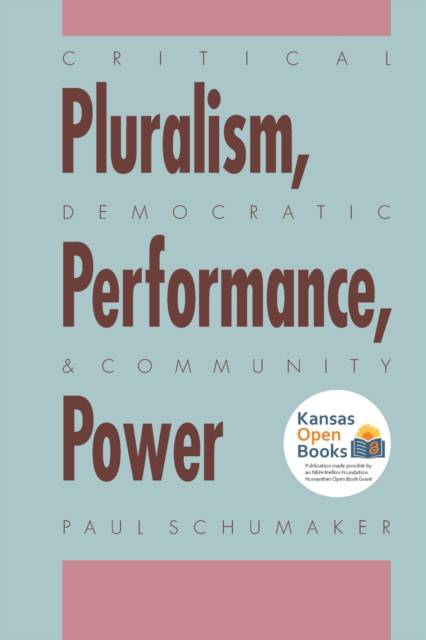
- Retrait gratuit dans votre magasin Club
- 7.000.000 titres dans notre catalogue
- Payer en toute sécurité
- Toujours un magasin près de chez vous
- Retrait gratuit dans votre magasin Club
- 7.000.0000 titres dans notre catalogue
- Payer en toute sécurité
- Toujours un magasin près de chez vous
Description
A central question in political science is who governs and how.
Typically political scientists attempt to answer this question by relying upon either empirical analysis, which explains existing political practices, or normative analysis, which prescribes ideal political practices.
Political scientist Paul Schumaker rejects this distinction between empirical and normative theory. Instead, he weds the two approaches to create the new analytical mode he calls critical pluralism. With it he can measure variances in government from pluralist/democratic ideals and still provide theoretical explanations of why the variances occurred.
Schumaker uses critical pluralism to describe, explain, and evaluate variations in three key measures of democratic performance: responsible representation, complex equality, and principle-policy congruence. To test his framework and methodology he analyzes 29 community issues that arose in Lawrence, Kansas, between 1977 and 1987. The results of his study--one of the most comprehensive databases ever in the study of community politics--will be of interest to those who study community power. The conceptual framework itself and methodology used in assessing democratic performance will have a lasting impact on the way community government is studied.
Spécifications
Parties prenantes
- Auteur(s) :
- Editeur:
Contenu
- Nombre de pages :
- 280
- Langue:
- Anglais
- Collection :
Caractéristiques
- EAN:
- 9780700631681
- Date de parution :
- 08-10-21
- Format:
- Livre broché
- Format numérique:
- Trade paperback (VS)
- Dimensions :
- 152 mm x 229 mm
- Poids :
- 385 g

Les avis
Nous publions uniquement les avis qui respectent les conditions requises. Consultez nos conditions pour les avis.






